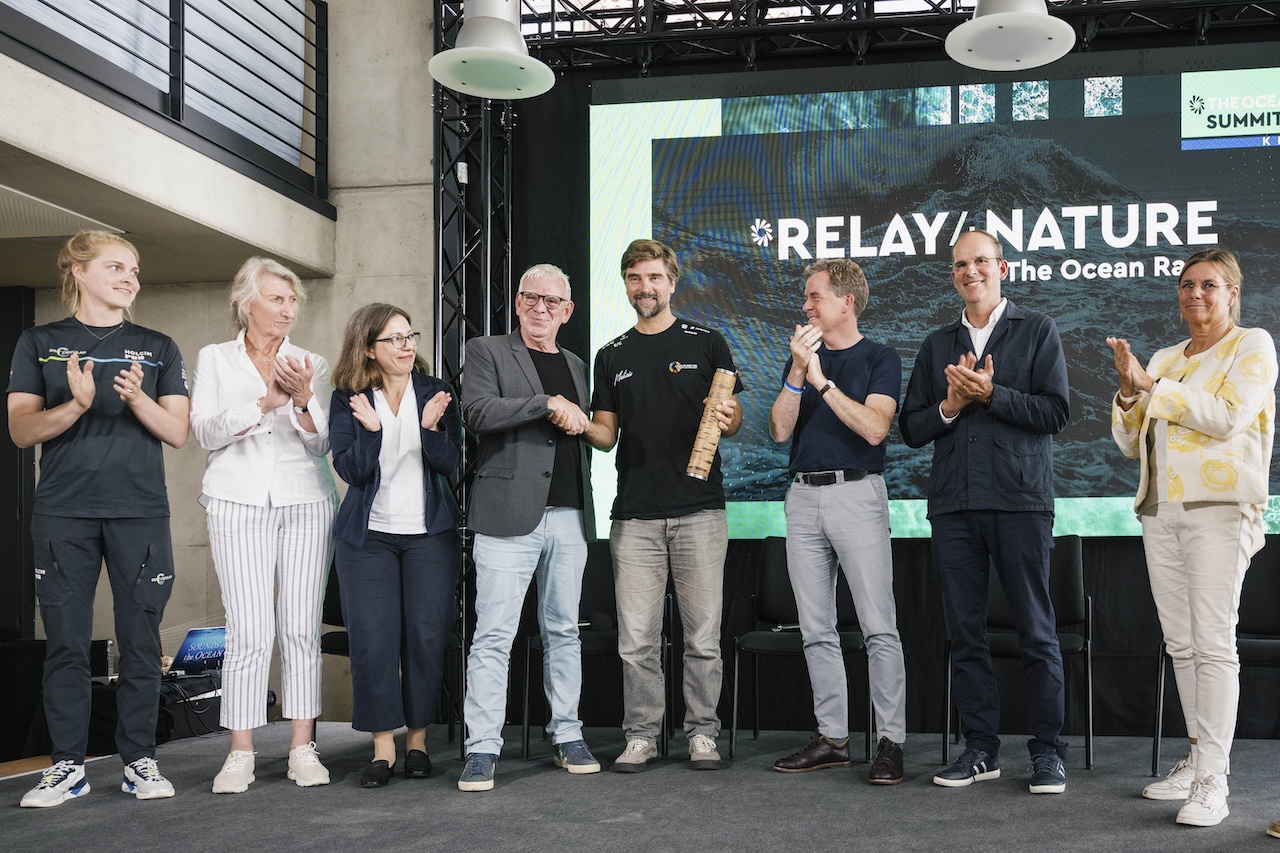Kiel Sets the Course – Where Sail, Science and the Baltic’s Future Collide

It was billed as “Connecting Europe for a Smart Ocean”, but beneath the polite title ran an urgent current – a call to act before the tide of marine decline turns irreversible. The timing was no accident: in just days, Kiel will send off the fleet for The Ocean Race Europe, a 4,500-mile offshore battle from the Baltic to the Adriatic.
Inside the ZBW – Leibniz Information Center for Economics – the conversation was sharp and solutions-driven. From plastic pollution chokeholds to wartime munitions rusting on the seabed, the panels didn’t shy away from the mess we’ve made of our waters. Germany’s own €100 million push to recover dangerous ordnance was held up as a case study in tackling stubborn, under-the-radar threats.
“There’s no time to lose, and no room for excuses,” declared Tobias Goldschmidt, Schleswig-Holstein’s Minister for Energy Transition, Climate Protection, Environment and Nature. The sentiment was echoed by Jochen Flasbarth, Germany’s State Secretary for the Environment, who stressed that healthy seas are as vital for people and climate as they are for wildlife.
The sailors, for their part, brought the grit. Boris Herrmann, skipper of Team Malizia, called the Summit’s programme a genuine driver of climate action – on and off the racecourse. Rosalin Kuiper of Team Holcim-PRB reminded everyone that for those who live by the wind and tide, the ocean isn’t an abstract concept. “It’s our playground,” she said. “We are ambassadors, role models, and we try to inspire in every port we visit.”
Among the more symbolic moments was the passing of Nature’s Baton – a rallying emblem for global environmental advocacy – reaffirming the shared responsibility that binds sailors, scientists and citizens.
One standout panel dug into the power of participatory science: how offshore racing yachts, out in the lonely blue where research ships rarely go, can gather critical data on ocean chemistry, microplastics, and climate change in real time. This is the beating heart of the new Racing for the Ocean Challenge, launched in partnership with the IMOCA class to keep ocean health firmly on the race’s scoreboard.
But perhaps the strongest call came from the Thursday morning “Making Waves – Baltic Edition” roundtable. Isabella Lövin, Swedish MEP and former Deputy PM, didn’t mince words: “The Baltic is one of the most polluted seas in the world – shallow, nearly enclosed, with dead zones the size of Denmark. We are in crisis, but also in a moment of opportunity.”
The panel’s immediate rallying cry? “Give the Baltic a break.” That means reducing fishing pressure so key species can recover, rebalancing the ecosystem and clearing the path for cleaner, healthier waters.
From here, the mission goes mobile. Once the start gun fires on 10 August, the fleet will carry not just racing crews but ocean sensors, streaming science from the Baltic to the Med. Seven iconic ports will host the message: ocean health is climate health – and both are non-negotiable.










